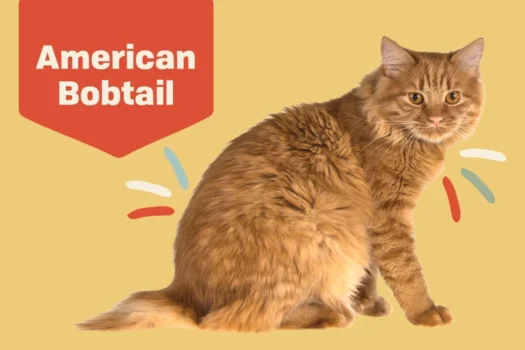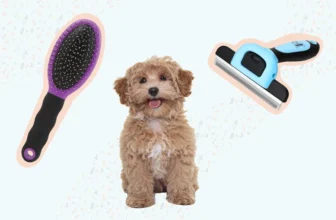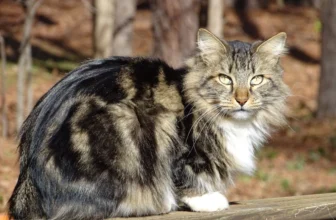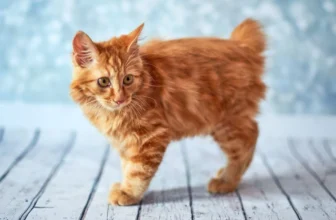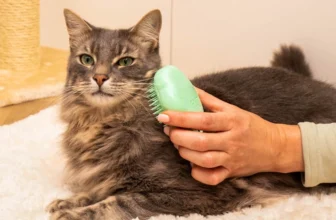American Bobtails are a unique breed of cat that originated in the United States. They are known for their playful and affectionate personalities, as well as their distinctive short tails. However, many American Bobtail owners often overlook the importance of dental care for their furry friends. As a responsible pet owner, it’s important to prioritize your cat’s dental hygiene. Neglecting dental care can lead to a plethora of health issues and discomfort for your feline companion. This article will explore why dental care is vital for American Bobtails, signs of dental problems to look out for, and preventive measures you can take to maintain optimal dental health for your furry friend.
Why Dental Care is Important for American Bobtails
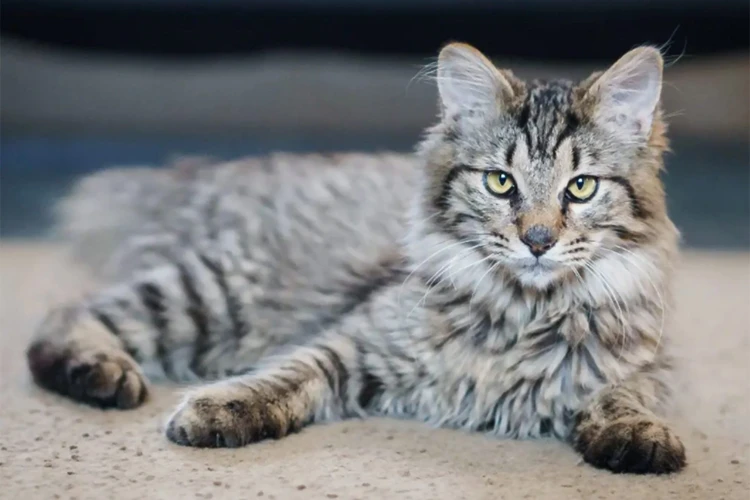
Maintaining the dental health of American Bobtails is crucial to their overall well-being. While many pet owners might overlook the importance of dental care for their furry friends, neglecting their teeth can lead to various health problems. From tooth decay to gum diseases, dental issues can cause discomfort and serious health complications in the long run. In this segment, we’ll be discussing why dental care is vital for American Bobtails, the benefits of regular dental checkups, and preventive measures pet owners can take to ensure their furry friends have healthy teeth. Let’s dive in and explore why dental care is essential for our American Bobtail companions. To learn more about the importance of dental hygiene or the common dental problems that afflict American Bobtails, check out our article on common dental problems for American Bobtails.
What Happens if Dental Care is Neglected?
Neglecting the dental care of your American Bobtail can lead to serious health problems. Below are some of the common consequences of ignoring dental hygiene in cats:
- Bad breath: One of the earliest signs of dental problems in cats is bad breath. If left unaddressed, it can worsen to become a persistent problem.
- Tooth decay: Tooth decay is a common dental problem in cats that arises from the accumulation of tartar and plaque. This can lead to the loss of teeth, which can be painful and uncomfortable for your furry friend.
- Gum disease: Gum disease is another common dental condition that is caused by the buildup of plaque and tartar. It can lead to swollen, inflamed, and bleeding gums. If left unchecked, it can result in the loss of teeth and damage to the jawbone.
- Pain and discomfort: Dental problems can cause pain and discomfort in cats, which can impact their mood and well-being. This can lead to a decrease in appetite, weight loss, and lethargy.
- Spread of infection: When dental problems are not treated in a timely manner, they can lead to the spread of infection to other parts of the body. This can cause serious complications and can be life-threatening in severe cases.
Taking care of your American Bobtail’s dental health is crucial to their overall well-being. Neglecting their dental hygiene can result in painful and sometimes life-threatening conditions. It is important to establish a regular dental care routine for your furry friend by scheduling regular visits to the vet, brushing their teeth with cat-friendly toothpaste using a soft-bristled toothbrush, and providing them with appropriate dental care products. For more information on American Bobtail dental care tips, you can follow this link.
The Benefits of Regular Dental Care
Regular dental care for American Bobtails brings forth numerous benefits that go beyond just keeping their teeth clean. Here are some of the key advantages of taking care of your American Bobtail’s oral hygiene:
- Prevents Tooth Decay: Regular dental care such as brushing, flossing, and professional teeth cleaning prevent the buildup of harmful bacteria in your cat’s mouth, reducing the risk of tooth decay.
- Prevents Plaque and Tartar Buildup: When dental hygiene is neglected, plaque and tartar buildup on your cat’s teeth, which can cause gum disease and tooth loss. Regular dental care keeps plaque and tartar at bay, improving the prognosis of your cat’s dental health.
- Prevents Bad Breath: Bad breath is often a sign of poor oral hygiene. Regular dental care can help eliminate the bacteria that cause bad breath and promote fresher breath.
- Saves Money: Regular dental care can identify problems early, allowing for more conservative and less invasive treatments. This can save you money in the long run as you avoid costly dental procedures or extractions.
- Improves Overall Health: There is evidence showing that poor oral health can lead to other health problems in cats, such as heart disease and kidney disease. Regular dental care can improve the overall health of your American Bobtail.
By prioritizing regular dental care for your American Bobtail, you can ensure their teeth and gums are healthy and prevent problems down the line. For more information on how to properly brush your cat’s teeth or to find dental care products for your American Bobtail, please visit /brush-american-bobtail-teeth/ or /american-bobtail-dental-care-products/.
The Link Between Dental Hygiene and Overall Health
Maintaining good dental hygiene not only improves the overall health of American Bobtails’ teeth, but it is also connected to their overall health. Poor oral health can lead to a range of general health issues. Here are some ways dental hygiene and overall health are interconnected:
- Heart Disease: Poor dental hygiene can lead to inflammation in the gums, which can increase the risk of heart disease.
- Diabetes: Diabetes can lead to gum problems as well as tooth decay. Gum disease can make it harder to control diabetes.
- Respiratory Infections: Bacteria from gum disease can travel to the lungs, potentially leading to respiratory infections such as pneumonia.
- Digestive Health: Digestion begins with the oral cavity, and poor oral health can lead to a range of digestive issues.
- Overall Well-Being: Poor dental hygiene can lead to pain, discomfort, and trouble eating, which can lead to a lower quality of life for American Bobtails.
It’s clear that taking care of American Bobtails’ dental hygiene is more important than just improving their oral health – it’s critical for their overall well-being. By keeping their teeth and gums healthy, we can ensure they stay happy and healthy for years to come.
Signs of Dental Problems in American Bobtails
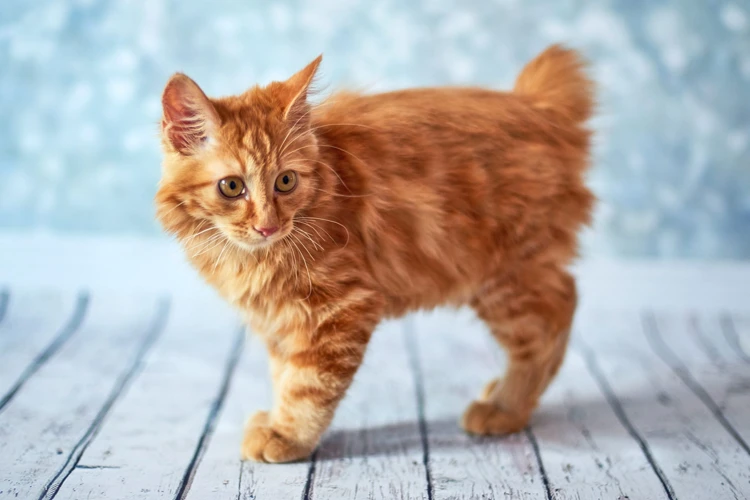
As pet owners, it’s important to keep a close eye on the health of our furry companions. American Bobtails are no exception, and dental problems can often go unnoticed until they become a serious issue. Keeping an eye out for visible signs of dental problems, such as bad breath and tooth decay, can help prevent more serious health issues down the line. In this section, we will go over some of the most common signs of dental problems in American Bobtails and what you can do to help prevent them.
Bad Breath
One of the most obvious signs of dental problems in American Bobtails is bad breath. If your feline friend has bad breath, it can be a sign that their teeth and gums need attention. Here are some possible causes of bad breath in American Bobtails:
- Poor oral hygiene: American Bobtails, like all cats, are susceptible to plaque and tartar buildup. If left untreated, this buildup can cause gum disease and tooth decay, leading to bad breath.
- Diet: The food American Bobtails eat can also contribute to bad breath. Foods with strong odors, such as fish, can leave your cat’s breath smelling less than pleasant.
- Medical issues: In some cases, bad breath can be a symptom of an underlying medical issue. Kidney disease, liver disease, and diabetes are just a few conditions that can cause bad breath in American Bobtails. If you notice persistent bad breath in your cat, it’s important to bring them to the veterinarian to rule out any underlying health problems.
If you notice that your American Bobtail has bad breath, it’s a good idea to schedule a dental check-up. A veterinarian can examine your cat’s teeth and gums and recommend appropriate treatment. Depending on the severity of the problem, your cat may need a professional cleaning, medication, or dietary changes. By addressing dental problems early on, you can prevent more serious health issues from developing in the future.
Discomfort While Eating
When it comes to dental health, one crucial sign of a problem in American Bobtails is discomfort while eating. If you notice your furry friend hesitating to eat, pawing at their mouth, or even dropping food mid-chew, it’s time to investigate further. Here are some potential dental issues that could be causing discomfort while eating:
| Potential Dental Issue | Symptoms |
|---|---|
| Gingivitis | Red, swollen, or bleeding gums can be a sign of gingivitis, a common gum disease that can cause pain when eating. |
| Broken Tooth | If your American Bobtail has a chipped or broken tooth, eating can be painful, especially when chewing on hard food. |
| Periodontitis | Advanced gum disease, or periodontitis, can lead to loose teeth or teeth shifting positions, making eating uncomfortable. |
| Oral Ulcers | Oral ulcers, or sores in the mouth, can cause pain or discomfort while eating or drinking. |
If your American Bobtail is experiencing discomfort while eating, it’s important to schedule a visit with a veterinary dentist as soon as possible. Ignoring dental problems can lead to more serious issues and even affect your cat’s overall health. With proper care and attention, you can help your furry friend maintain healthy teeth and gums and enjoy their meals without pain or discomfort.
Visible Signs of Tooth Decay and Tartar Buildup
It is essential to pay attention to your American Bobtail’s teeth to detect any signs of tooth decay and tartar buildup. Here are some visible signs to keep a lookout for:
- Brown spots on teeth: Brown spots on the teeth indicate tooth decay. If left untreated, decay can lead to infections and even tooth loss in severe cases.
- Yellow or brown coating on the teeth: A yellow or brown coating on the teeth is a sign of tartar buildup. Tartar is hardened plaque and can cause gum disease and tooth decay if left untreated.
- Red and swollen gums: Red and swollen gums are signs of gum disease, which can lead to tooth loss if not treated promptly.
- Bleeding gums: Bleeding gums are also a common sign of gum disease. It is essential to address gum disease early to avoid more serious health issues.
- Loose or missing teeth: Loose or missing teeth are a significant sign that your American Bobtail may be experiencing severe dental issues. In some cases, emergency dental treatment may be necessary.
It is crucial to bring your American Bobtail to the vet as soon as you notice any of these signs. Early diagnosis and treatment can save your pet from further complications and expensive dental procedures down the line. Regular dental checkups can also help prevent the development of these dental issues in the first place.
Preventive Measures for Optimal Dental Health
Ensuring optimal dental health for American Bobtails requires a combination of professional dental care and at-home preventive measures. Regular dental check-ups and professional teeth cleaning by a veterinarian are crucial to detect and treat dental problems early on. But what can you do at home to maintain your cat’s dental hygiene? In this section, we will explore some preventive measures that you can take to promote your American Bobtail’s dental health and prevent dental problems from developing in the first place. Remember, prevention is key to avoiding costly and painful dental treatments down the road.
Professional Teeth Cleaning
Maintaining proper dental hygiene for American Bobtails isn’t only limited to regular at-home brushing and flossing. Professional teeth cleaning by a veterinarian is also an essential aspect of dental care. During a professional teeth cleaning, a veterinarian will perform a thorough examination of the cat’s mouth, teeth, and gums to identify any dental problems. They will then use specialized tools to clean the teeth and remove any plaque or tartar buildup that may have accumulated over time. Let’s take a closer look at the benefits of professional teeth cleaning in the table below:
| Benefits of Professional Teeth Cleaning |
|---|
| 1. Prevention of Dental Diseases: Professional teeth cleaning removes plaque and tartar from the teeth, which can prevent dental diseases such as gingivitis and periodontitis. |
| 2. Early Detection of Dental Problems: During a professional teeth cleaning, a veterinarian can identify any dental issues such as cavities or tooth fractures before they worsen and become more challenging and expensive to treat. |
| 3. Helps Maintain Good Overall Health: Regular cleaning can reduce the risk of bacterial infections that may spread to other parts of the body, leading to potential health issues such as heart disease or kidney damage. |
| 4. Fresher Breath: Professional teeth cleaning can help resolve bad breath, which is a common symptom of poor dental hygiene. |
| 5. Increase in Lifespan: Professional teeth cleaning can potentially increase the lifespan of American Bobtails by preventing dental problems and reducing the impact of any issues before they become worse. |
It is recommended that American Bobtails receive professional teeth cleaning once a year or more, depending on the cat’s dental health. By taking proper dental care measures, American Bobtails can maintain proper oral hygiene and reduce the risk of dental problems, leading to overall good health and a longer lifespan.
At-Home Dental Care
One of the most crucial aspects of maintaining good dental health for your American Bobtail is providing effective at-home dental care. It includes brushing and flossing your cat’s teeth regularly. Here are some tips that can help you take care of your feline’s teeth with ease.
Brushing Your Cat’s Teeth: Brushing is a highly effective method to remove plaque and tartar buildup from your cat’s teeth. However, most cats are reluctant to get their teeth brushed, which can make the process challenging. The following steps can make brushing less stressful for both you and your pet:
- Start by getting your cat used to having their mouth and teeth touched. Use your fingers to rub your pet’s teeth and gums gently.
- When your cat is comfortable with you touching their mouth, introduce your cat to toothpaste. Use a toothbrush specifically designed for cats along with flavored toothpaste, specially made for felines.
- Gradually introduce toothbrushing to your cat’s routine by starting with a small amount of toothpaste and increasing gradually. Be patient, and reward your pet with treats and praise.
- Brush your American Bobtail’s teeth with gentle, circular motions, and be sure to focus on the back teeth, where plaque and tartar buildup typically occur.
Flossing Your Cat’s Teeth: Flossing your cat’s teeth is another essential part of their dental hygiene, but it can be tricky to do. If you’re going to floss your pet’s teeth, use a feline-specific dental floss that is gentle on their gums. Here’s how to get started:
- Introduce the floss gradually, just like with toothbrushing. Start by getting your cat used to the feeling of dental floss around their teeth.
- Once your cat is comfortable, you can start using the floss to remove any debris or buildup that brushing missed.
- Be gentle and cautious while flossing to prevent injuring your cat’s gums or mouth.
- Again, be patient and reward your pet with praise and treats once the process is done.
You may not see a significant improvement in your cat’s oral health immediately, but regular at-home dental care is essential for maintaining optimal dental hygiene in your American Bobtail. Also, make sure to follow these steps consistently to ensure that your pet’s oral hygiene routine remains consistent.
The Role of Diet in Dental Hygiene
Maintaining good oral hygiene in American Bobtails requires more than just regular teeth cleaning. A healthy and balanced diet is also vital to their overall dental health. Here are some important points to consider when it comes to the role of diet in dental hygiene.
1. Limit sugary and processed foods: Cats, including American Bobtails, are susceptible to dental problems caused by a buildup of plaque and tartar on their teeth. Sugary and processed foods can increase the risk of plaque and tartar buildup, leading to bad breath and tooth decay. Consider limiting such foods or replacing them with healthier options.
2. Provide hard and chewy foods: Hard foods like raw bones or chewy foods like jerky can provide natural teeth cleaning for American Bobtails. These snacks can help remove any plaque buildup and strengthen their teeth. However, always ensure that the bones are not too hard as they can break their teeth.
3. Offer water instead of milk: Cats love milk, but it can be harmful to their dental health. Milk is high in lactose, which can cause tooth decay, especially if your American Bobtail is lactose intolerant. Instead of milk, offer clean and fresh water, which can help rinse their teeth and eliminate any leftover food particles.
4. Introduce dental chews or toys: Chewing on dental chews or toys can also help promote dental hygiene in American Bobtails. These products can assist in removing any food particles and reduce the risk of tartar buildup. However, be mindful of the products you choose and avoid anything that may contain harmful chemicals or additives.
Diet plays a significant role in American Bobtails’ dental hygiene. By providing a well-balanced diet, limiting sugar intake, and offering appropriate foods and chews, you can help ensure that your feline friend’s teeth remain healthy and strong.
Conclusion
In conclusion, it’s clear that dental care is essential for the overall health and well-being of American Bobtails. Neglecting dental care can lead to various health issues, including tooth decay, tartar buildup, bad breath, and discomfort while eating. However, regular dental care can prevent these problems and improve the quality of life for your furry friend.
Professional teeth cleaning and at-home dental care are both necessary for maintaining optimal dental health in American Bobtails. Along with these preventive measures, a balanced diet also plays a significant role in dental hygiene. By providing your cat with the right nutrition, you can help keep their teeth and gums healthy.
In addition, it’s important to keep an eye out for signs of dental problems in your pet. Bad breath, discomfort while eating, and visible signs of tooth decay or tartar buildup are all indications that dental care is needed.
By prioritizing dental care for your American Bobtail, you can help ensure that they stay healthy and happy for years to come. So take the necessary steps to keep your pet’s teeth and gums healthy, and enjoy the benefits of a happy, healthy feline companion.
Frequently Asked Questions
How often should American Bobtails have their teeth cleaned?
It’s recommended that American Bobtails have their teeth professionally cleaned by a veterinarian at least once a year.
Can dental problems in cats lead to health problems in other parts of their body?
Yes, dental problems in cats have been linked to more serious health issues such as heart disease and kidney problems.
What are some signs of dental problems in American Bobtails?
Some signs of dental problems include bad breath, difficulty eating, and visible signs of decay or tartar buildup on the teeth.
What is tartar and how does it affect my cat’s dental health?
Tartar is hard, yellowish buildup that forms on the teeth when plaque is not removed. It can lead to tooth decay, gum disease, and other dental issues.
Are there any home remedies I can use to clean my cat’s teeth?
While there are some home remedies such as brushing your cat’s teeth with a soft-bristled brush and dental-specific cat toothpaste, it’s recommended to have professional teeth cleaning by a veterinarian.
What types of food can promote dental health in American Bobtails?
Feeding your cat food that is high in protein and low in carbohydrates can help promote dental health. Additionally, dental-specific cat food and treats can help remove plaque and tartar buildup.
What can I expect during a professional teeth cleaning for my American Bobtail?
A professional teeth cleaning typically involves a thorough exam, scaling to remove tartar buildup, and polishing to smooth the teeth’s surface. Your cat will be under anesthesia during the procedure for their comfort and safety.
Is dental care for American Bobtails expensive?
While the cost of dental care for American Bobtails can vary depending on the clinic and the level of care needed, it’s important to prioritize dental health in your pet’s overall wellness. Preventative care can help save money in the long run and ensure your cat’s health and comfort.
Can I use human toothpaste on my American Bobtail?
No, human toothpaste is not recommended for cats as it can be toxic or cause digestive issues if ingested. It’s important to use dental-specific cat toothpaste and tools for your cat’s care.
Can dental problems in American Bobtails be prevented?
While genetics may play a role in dental health, there are steps pet owners can take to promote dental health in their American Bobtails. Regular professional teeth cleaning, at-home dental care, and a balanced diet can all help prevent dental problems.

